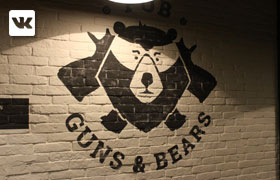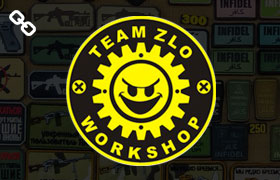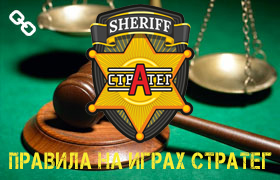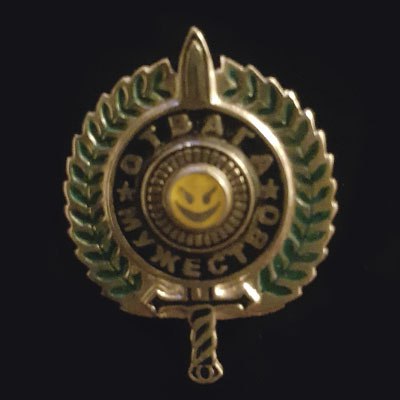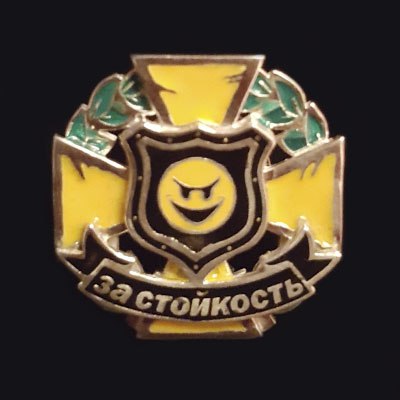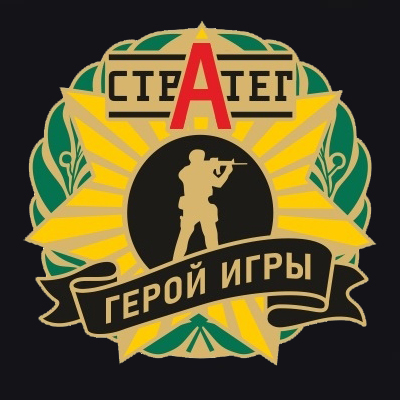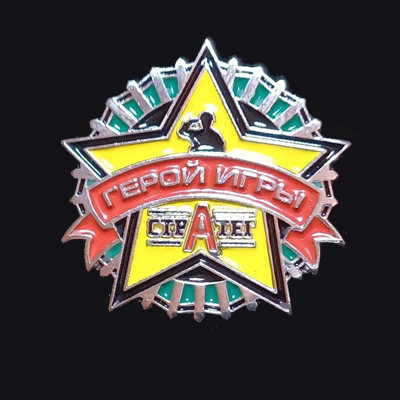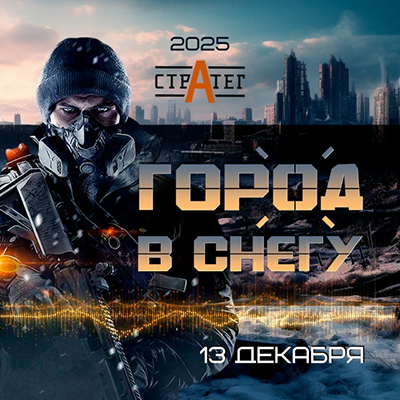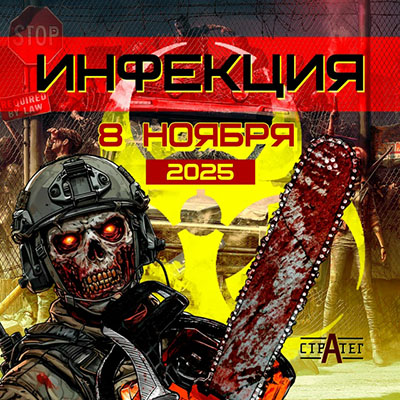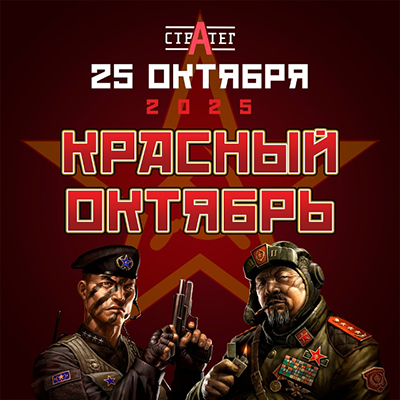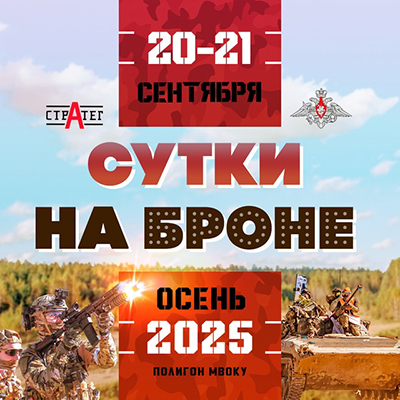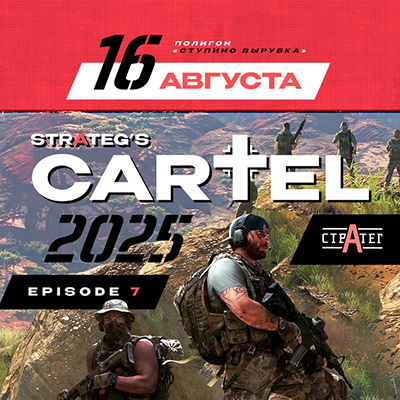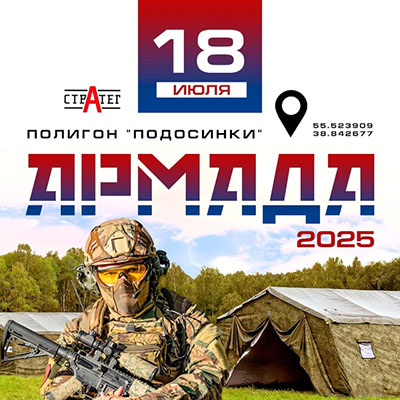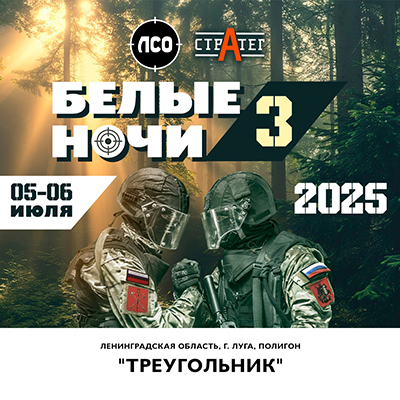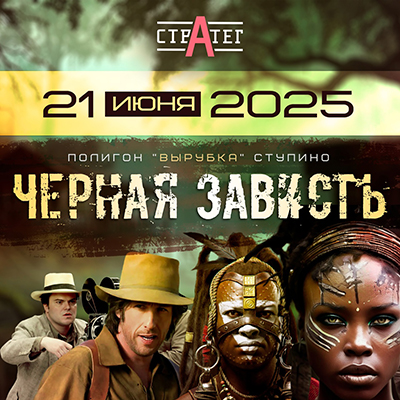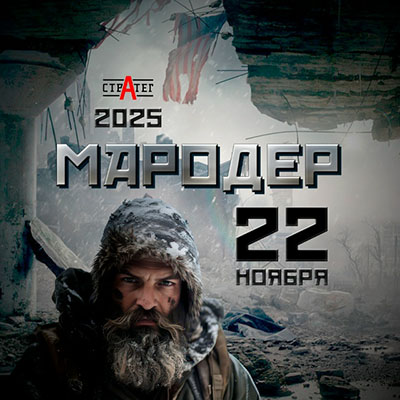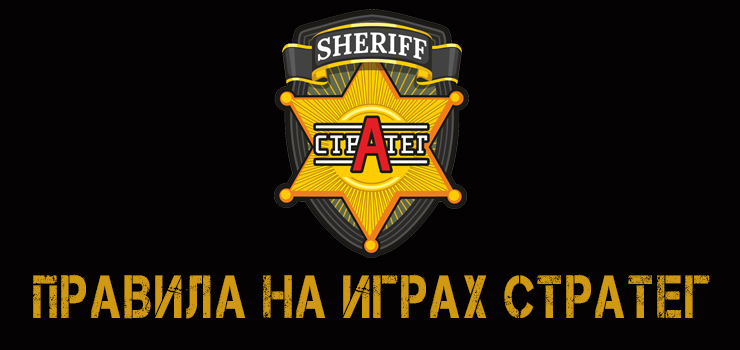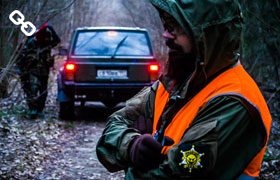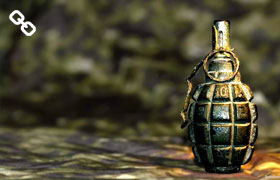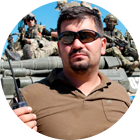RULES OF THE GAMES ORGANIZED BY “ZLO” TEAM
(as of April 2017)
- GENERAL RULES
1.1. An airsoft game (referred to below as “the game”) is a tactical team wargame with the use of airsoft weapons. 1.2. The meaning of the game lies in collective recreational activity, getting rid of aggression and negativity, in pleasant communication between persons of merit.
1.3. The game is played by teams armed and outfitted in accordance with these rules. The teams are divided into opposing sides.
1.4. The aim of the game for teams and sides is to gain the objectives set in the game scenario.
1.5. To achieve their goals and to prevent their adversaries from doing so players must hit them with replica weapons. It is much more humane.
- PLAYERS AND ADMISSION RULES
2.1. Players are event participants who have registered, have read and understood these rules and field safety regulations, those who have been admitted by the organizers and have brought all the necessary gear.
2.2. People under 18 years old are admitted only if accompanied by parents, close relatives or a chaperon with a written permission from the parents. They must play together at all times, and if one of them is eliminated they both go to the deadzone. Children under 12 years old are not admitted at all.
2.4. Only members of airsoft teams that have been given admission by the game organizers may participate in the game.
2.5. A team is a unit of 5 or more players wearing consistent uniforms (a consistent camouflage pattern), with a team patch. Members of different platoons within a team may wear different camouflage patterns if the platoon counts at least 5 people (thus, the team must be at least 10 people strong).
2.5. A team alliance is a unit comprising several teams. The alliance members must wear the alliance patch as well as the team patch. An alliance registers, gains admission and holds responsibility for its members as a single team.
2.7. To gain admission teams and alliances must have participated in at least one of ZLO’s games or must be part of an official airsoft association.
2.8. New teams or teams that are not part of an official airsoft association and have not participated in any of ZLO’s games may be admitted with guarantees from any team that complies with the rules or according to the results of a test game. First-timer teams must be at least 5 people strong.
2.9. A regional team is a team not originating from Moscow or Moscow area. The team status is determined by the point of residence of most team members.
2.10. Regional teams are admitted only upon the recommendation of other teams from that region that have participated in ZLO’s games, or of game organizers whose games they have attended.
- GAME GEAR AND EQUIPMENT
3.1. To participate in ZLO’s games players are required to have the following mandatory gear:
3.1.1. Eye protection (a mask or safety glasses) which can absorb a hit from a replica with muzzle energy of 3 J from a distance of 1 meter.
3.1.2. The team patch, also the alliance patch (if the team is part of an alliance). If the player is not entitled to a standard team patch he/she must wear a patch with the team name spelled on it. The patch must be placed on the shoulder or on the breast and must not be covered by gear.
3.1.3. The side rag. Players on the battlefield must have at least one rag of a designated color at least 5 cm wide, fixed on the shoulder or on the breast gear. There may be several rags. Players may not take off the rags in the battlefield or wear the opposing side’s rags. Players in Ghillie suits, “Kikimora” or “Leshy” suits may wear the side rag on the leg.
3.1.4. A red rag to mark that the player has been eliminated.
3.1.5. A red flashlight (if the game takes place at night or underground).
3.1.6. The registration band on the wrist.
3.2. If anything from the above list is missing the player is not allowed to participate.
3.3. The uniform and the appearance. Players may wear military or tactical apparel, footwear and gear.
3.4. Flashlights. There are no limits to the power of flashlights in open fields. In enclosed areas (CQB, underground facility) maximum flashlight power is 200 lumen. Strobe lights are prohibited, putting flashlights in strobe mode is prohibited.
3.5. Laser target designators (LTDs): Only red LTDs up to 5 mW are allowed.
WEAPONS
4.1. Small arms
4.1.1. Allowable weapons are mechanical, electric blowback, gas blowback and high-pressure air manufactured replicas firing 6-mm 0.12-0.45g BBs.
4.1.2. Maximum muzzle energy with a tuned hop-up system must not exceed:
* 1.44 J for CQB replicas;
* 2.4 J for autos and open field replicas;
*3 J for sniper replicas (longer than 90 cm, no in-built auto mode, optical sight present).
4.1.3. The above figures include instrumental errors.
4.1.4. All weapons meant for the game must be chronographed and approved by game organizers or sheriffs. Replicas must be chronographed with BBs of regular weight for each gun. If it is not possible the replicas will be chronographed with 0.2 g BBs.
4.1.5. Tracers (glowing BBs) may be used without restrictions. They are recommended (but not mandatory) for night use.
4.2. Melee weapons
4.2.1. Allowable melee weapons are replicas which are made of soft easily bended plastic (PSC, EVA) or rubber, are shorter than 40 cm and have no sharp edges.
4.2.2. Cold Steel training knives and axes are allowed.
4.3. Hand grenades
4.3.1. Only airsoft grenades with standard pyrotechnics certificates are allowed.
4.3.2. Flash bang grenades are prohibited.
4.3.3. Pyrotechnics and firecrackers with no projectiles are prohibited. Only BBs or whole peas may be used as projectiles.
4.4. Hand-held grenade launchers
4.4.1. These include “tags”, “arrows”, and grenade launcher fragmentation rounds.
4.4.2. Only manufactured grenade launchers with certified shots are allowed.
4.4.3. Firing hand-held grenade launchers at targets within 20 meters is prohibited. High-angle shooting is recommended.
4.4.4. Firing hand-held grenade launchers inside a building at targets that are also inside is prohibited.
4.4.5. Canister ammunition for grenade launchers adheres to the rules for small arms below 1.44 J.
4.5. Mortars
4.5.1. Allowable mortar launchers must be propelled by mechanics, high-pressure air, gas, or standard firecrackers. Improvised launchers based on powder mixtures are prohibited.
4.5.2. Allowable mortar shots include custom ammo based on firecrackers equivalent to “Corsair-6” or lower. Projectiles are limited to BBs or whole peas. Ammo bodies must be softened and must not include parts made of metals, hard plastic etc. so as to minimize injury chances.
4.5.3. Only high-angle shooting is allowed with mortars. Mortars may only be fired from a surface (from the ground, from a vehicle etc.) Arm shooting is prohibited.
4.6. Smokes.
4.6.1. Only smokes certified for technical wargames and RDG-2B military smoke pots (white smoke) are allowed. 4.6.2. Using colored smokes is prohibited.
4.6.3. Smokes may only be used outside buildings.
4.7. Illuminating and signal flares.
4.7.1. Illuminating and signal flares may only be shot upwards without hitting anything until the flare burns out completely.
- ELIMINATING PLAYERS DURING THE GAME
5.1. Small arms.
5.1.1. A player is considered eliminated by small arms if at least one BB hit any part of his/her body or gear (except shields). Hitting replicas, scout’s tubes, mirrors or prisms does not count.
5.1.2. Ricochets (BB trajectory alteration exceeding 45 degrees) don’t count. BBs flying through overgrowth tend to alter trajectories somewhat. This is not considered a ricochet, and a hit with such a BB counts.
5.1.3. Friendly fire hits players as surely as enemy fire does.
5.1.4. Players may not fire sniper weapons (over 2.4 J) at targets within 10 meters. Use sidearms (eg pistols).
5.1.5. Point-blank shooting with weapons under 2.4 J is not prohibited but is not encouraged either. Players are recommended to shoot at feet or covered body parts at close quarters. If you are sneaky enough to get at point-blank range and the enemy still doesn’t see you try to do as little harm as possible – fire at the chest rig, the boots, the back, or capture that player.
5.2. Melee weapons.
5.2.1. Only slashes are allowed.
5.2.2. Striking at heads, necks or groins is prohibited.
5.2.3. Throwing melee weapon replicas at other players is prohibited.
5.2.4. Eliminating a player with a melee weapon replica counts as a “silent kill”, the eliminated player may not call out “hit”, “eliminated” or “medic!” for 1 minute.
5.3. Pyrotechnics (hand grenades/grenade shots/mines.
5.3.1. A player is considered eliminated by pyrotechnics if at least one projectile hit any part of his/her body or gear (except special gear, like shields, mirrors, scout’s tubes etc.)
5.3.2. All players within 3 meters of pyrotechnics at the moment of detonation are eliminated if there are no fortifications between them and the pyrotechnics in question.
5.3.3. Direct hits from bodies of grenades, mines or shots without detonation do not count.
5.4. Players’ actions on elimination.
5.4.1. Players must immediately call out hits by raising their arm or replica.
5.4.2. After calling out the hit the player must put on his/her red rag (or switch on his/her red flashlight if it’s dark) and leave the battle spot as soon as possible.
5.4.3. Eliminated players must immediately go to the deadzone or to a respawn point without lingering in the battlefield.
5.4.4. Eliminated players may not talk to players in-game or use the radio (including announcements of their elimination).
5.5. The main task of an eliminated player is to make clear to others present at once that he/she is a dead man walking and to leave the battlefield as soon as possible. If an eliminated player is hit by BBs it is considered a violation of this paragraph on HIS/HER part.
- SHIELDS
6.1. Allowable shields are visual replicas of ballistic shields heavier than 10 kg without sharp corners or borders. Shields may include armored sight gauges, in-built portholes or flashlights complying with these rules.
6.2. A player bearing a shield can only use pistols, hand grenades or melee weapons. Using other weapons is prohibited.
6.3. When a shield bearer is hit he/she must take his/her shield to the deadzone. Players who has been eliminated may not pass on their shields to in-game players.
6.4. If a grenade detonates within 3 meters from a shield bearer he/she is considered eliminated even if not hit by the projectiles.
6.5. Players may not shut passages or windows with a shield for more than 60 seconds. If the shield can be passed the passage is not shut. The opposite is also true.
6.6. Shield bearers may not thrust other shields or other players with their shield. Players may not grip shields with their hands.
- FORTIFICATIONS, COVERS AND BUILDINGS
7.1. Anything that stops a BB is considered cover. Examples are bushes, trees or terrain folds. A player’s gear may serve as cover if the player has taken it off and is not touching it (ex. a backpack lying in front of the player, a helmet raised on a pole above the trench)..
7.2. A fortification is an engineering construction created specifically for protection purposes. Examples are trenches, sandbags, walls (including wooden walls), windows, doors or vehicle bodies.
7.3. If any pyrotechnics detonates within 3 meters from a player everyone nearby who is in open terrain or behind cover is eliminated. Players behind fortifications are not eliminated.
7.4. Players may not damage on purpose, move or destroy fortifications. Players may not set up barriers or barricades to block passages. Players may not open or close doors and windows. That which is closed stays closed, that which is open stays open.
7.5. Players may improve existing fortifications or set up some of their own. The place and construction details must be approved by the game organizers.
7.6. A building is a closed-in construction with walls and a roof. If at least one wall has fallen or there is no roof such a “building” is considered a fortification.
7.8. Players may shoot at outside targets from within a building only with hand-held grenade launchers or with replicas over 1.44 J. Players outside a building may shoot at targets that are inside. Shooting inside the building at targets that are also inside is prohibited.
7.9. Using smokes inside buildings is prohibited.
NON-COMBATANTS
8.1. Non-combatants are guests who have arrived at the facility but will not participate in the game. Examples are onlookers, players’ spouses, children, relatives, friends etc.
8.2. Non-combatants are not allowed to enter the game territory or to participate in the game in any way possible.
THE PRESS
9.1. Correspondents must wear a large PRESS sign and have a “military” appearance. They may not wear red, yellow, orange, etc high-visibility vests.
9.2. Correspondents may not interview in-game players. All interviews take place only after the eliminated player has left the game.
9.3. Correspondents must leave their positions at the first warning from a player.
9.4. Correspondents may not designate players’ positions with their actions.
9.5. Correspondents use filming equipment at their own risk. Neither game organizers nor players are responsible for the integrity of their equipment за порчу.
9.6. Correspondents must register in the relevant topic and gain admission from the game organizers. Afterwards the correspondents must sign in at the field where they receive admission to the facility and a filming permit.
9.7. Correspondents must upload their photos and videos to a public server and post the links on one of the public game sites within a week after the game.
9.8. Before publishing interviews, reports etc the text must be approved by the game organizers.
10. GENERAL RESTRICTIONS
10.1. Shooting through holes, slits etc. Players are allowed to fire through any holes, slits and portholes in doors, walls, shields etc even if the shooter cannot be hit. You have to see the target though.
10.2. Replicas are fired similar to the original guns. If the real steel is supposed to be fired with both hands do the same with the replica.
10.3. Blind firing. Players must always look at the target when shooting. It is possible to use mirrors, prisms or slits.
10.4. It is prohibited to pass off as the enemy. When prompted for their side players must answer truthfully or keep silent. Only direct lies like “Confederates”, “The Blues” etc. are prohibited. Replies like “Friendlies”, “The good guys”, “Don’t shoot” etc. are not lies and therefore do not count as a rule violation.
10.5. Radio play. Players may monitor the enemy’s frequency and misinform them on the radio. Players may not jam the enemy’s links with noises or general sounds. Players may monitor organizers’ links. Players may not capture or jam organizers’ links or misinform organizers.
10.6. Players may not pick up and cast away or kick away initiated pyrotechnics.
10.7. Players must go dry 6 hours before the game starts and until it ends.
10.8. Players may not touch others’ gear or weapons. Players may not board or mount any vehicles without the driver’s or the moderator’s permission.
10.9. Hand-to-hand combat is prohibited. Grappling other players’ gear or weapons is prohibited, even if the aim is only to move said gear aside.
- AREAS OF THE GAME
11.1. There are three types of areas: the battlefield, the deadzone, and the respawn points.
11.2. The battlefield boundaries are marked by signal tape or listed in the game scenario and follow distinguishing terrain features (roads, rivers, fences etc.).
11.3. Eye protection is absolutely required at the battlefield at all times, even when posing for photos. This requirement is valid for the whole duration of the event, even before the game starts.
11.4. If the glasses are badly fogged or dirty the player may turn towards his/her comrade or a nearby fortification and only then wipe it all off. It is prohibited to wipe glasses while casting a lordly gaze into the distance.
11.5. A player who has left the battlefield boundaries is considered eliminated and must go to the deadzone.
11.6. The deadzone is a special resting zone where players spend the required time after elimination. Eye protection is not necessary there. When entering the deadzone players must remove the magazine of the replica or the ball feeder of the machine gun and unload the grenade launchers (those that cannot be unloaded must be put away in a closed pouch).
11.7. The respawn point is the place where players enter the game. It is part of the game area. Glasses must be on, magazines may stay on.
- CAPTURING A PLAYER
12.1. To capture a player smack him/her lightly on the back and say “captured”.
12.2.A captive may not use replicas or reinforcing weapons, including upon him/herself, may not bring his/her capture to the notice of same side’s players except by raised arms, or try to escape. A captive stays in game and can be eliminated. A player may capture only one other player at a time. The captivity time may not exceed one hour (as counted by the captive).
12.3. The captor may send the captive to the deadzone at any time as “killed” .To do this, fire into the air near the captive or eliminate him/her with melee weapons.
12.4. The captor can free the captive at any time as “free”. The ex-captive may continue the game under general rules.
12.5. If there’s no in-game guard within 3 meters from the captive for 5 minutes the captive is believed to have escaped. The ex-captive may continue the game under general rules.
12.6. The captive may be asked three questions, to which he must truthfully reply “yes” or “no” After the interrogation the captive must be freed or eliminated at once.
- VEHICLES
13.1. We believe vehicles to be an airsoft game’s beauties, thus we have made the rules as favorable for them as possible. A vehicle should be real power, a real threat to the enemies, one which reinforces the group. At the same time, all players should have a clear understanding that vehicles can be destroyed, even if it’s hard, and that there are specific ways to do that.
13.2. In-game vehicles must be provided with a horn and two flags (a red one and a white one) approx. 30 by 30 cm with short poles for marking that the vehicle is hit/destroyed.
13.2 Safety arrangements.
13.2.1. The driver is responsible for driving an ultrahazardous machine! His/her main task is to drive carefully and not to run anyone over! The driver observes the rules related to his/her vehicle and sees that his/her passengers do observe all the.
13.2.2. Moderators are in charge of vehicles provided by the game organizers. Such vehicles may not move without a moderator present.
13.2.3. Vehicles move through game territory at max speed of 12.4 mph (20 km/h). Driving through bushes and overgrowth is prohibited.
13.2.4. When the vehicle is moving players may not board it, get out or jump off until it stops completely.
13.2.5. Vehicles in the battlefield must always call out the departure with a short blast or a cry by the person in charge (the driver or the moderator).
13.2.6. Players may not stay under the bottom or closer than two meters to the hood or trunk of a vehicle that has already started.
13.2.7. Vehicle drivers sign in at registration and cannot be replaced in-game. To replace a driver the vehicle must get back to the dead zone. Game organizers must be notified of driver replacement.
13.3. Types of vehicles.
13.3.1. There are four types of vehicles: “off-side” vehicles (destroyed, service or third-party vehicles), heavy armor, military vehicles (belonging to the organizers or to players), and parked vehicles. The rules for each type are as follows.
13.4. “Off-side” vehicles.
13.4.1. Destroyed, service or other vehicles which are not in game are marked with a red flag or red ribbons on rear-view mirrors. Hazard lights may also serve as markings.
13.4.2. Players must not shoot or throw grenades at “off-side” vehicles. Only eliminated players may stay inside.
13.4.3. Players may not use “off-side” vehicles as moving cover. A vehicle must wait until the battle intensity subsides somewhat before going through.
13.5. Heavy armor.
13.5.1. Heavy armor includes tanks, heavy assault armor vehicles and other vehicles listed in the game scenario.
13.5.2. Heavy armor is closed, drivers are non-attackable, players may not enter these vehicles. Players may not board moving heavy armor or come closer than 1 meter either.
13.5.3. Elimination rules for heavy armor are listed in the game scenario.
13.6. Military vehicles (MPCs, light armored multipurpose tracked tractors, players’ cars).
13.6.1. Military vehicles (MVs) are considered the driver’s gear. When the driver has been eliminated the vehicle goes to the deadzone.
13.6.2. MVs are considered armored including glass. For grenade detonation purposes the MV body is considered a fortification. Players inside an MV may shoot through firing ports, hatches on the jar or window slits. Glasses and doors may be in any position. A player who is inside an MV may be hit through a slit or a firing port.
13.6.3. MVs may be hit by a grenade or a shot from an enforcing weapon. For the MV to be hit a grenade (a hand grenade launcher shot, a mine) must touch any part of the MV and then detonate (anywhere). If a grenade detonates inside the MV body it hits the MV and all personnel inside. If an argument arises (such as when a grenade hits a moderator or a mounted player) the driver or the moderator has the final say.
13.6.4. If an MV is hit for the first time it is considered disabled. It stops and stays put until destroyed or repaired. Players inside or mounted on the MV have survived (if not hit by the grenade projectiles) and may continue firing. The turret on the MV is also in operation.
13.6.5. The driver or the moderator marks the MV that has been hit with a white flag.
13.6.6. The driver (or another player, if the driver is not a player) may place both hands on the hood and hold them there for 3 minutes. After that the MV is considered repaired. If the repair process was interrupted the time count starts anew.
13.6.7. An MV that has been hit twice is considered destroyed. All the players inside or mounted on a destroyed MV are considered eliminated. The driver (or the moderator) may consider the MV destroyed at any moment.
13.6.8. An MV calls out its destruction with a long continuous yanking of the onboard horn for 3-4 sec. If the horn is out of service the driver cries out “Destroyed!” Immediately afterwards, the driver, the moderator or a player must put up the red flag on the MV. It is also possible to flash hazard lights.
13.6.9. A destroyed vehicle must be cleared out of the way at once and must be taken to the vehicle respawn point or to the deadzone. MVs get back in game when the driver respawns or as the moderator decides.
13.7. Parked vehicles.
13.7.1. Parked vehicles are considered non-destructible fortifications. The engine and the headlamps are off, the doors and windows are closed. In-game players may not stay inside parked vehicles. Eliminated players may sleep inside. If the vehicle has an open bed players may stay in it and fire from there. Players may not use turrets on parked vehicles.
13.7.2. Players may not shut off roads or passages with parked vehicles. Players may not move others’ vehicles by force.
13.7.3. An in-game vehicle may become parked at any moment at the driver’s discretion.
13.7.4. If the driver decides that his parked vehicle is ready for the game, he must mark it as “off-side”, drive it to the respawn point and start the game there.
- MODERATORS AND SHERIFFS
14.1. Non-player characters (NPCs) are moderators who enforce the scenario, observe the safety arrangements on vehicles, ensure capture and control of gaming positions, act as VIPs etc. They wear high visibility vests and name (call sign) tags. They must not settle player conflicts. In case of disputes or conflicts they should call the nearest marshal or sheriff.
14.2. Marshals are moderators who act both as NPCs and as referees. They settle conflicts and arguments, enforce game rules and organizers’ requirements. They wear high visibility vests, a ZLO’s sheriff patch and a readable name band or a name (call sign) tag.
14.3. Sheriffs are team representatives who have a ZLO’s sheriff patch. They can settle player disputes and enforce game rules and game organizers’ requirements. Sheriffs may not monitor NPCs tasks.
14.4. If sheriffs disagree on something they turn to the game organizers or to the nearest marshal.
14.5. Players must comply with the demands of a sheriff or a marshal, but they also may complain to the game organizers if they do not agree with the final decision. When filing a complaint the player must give the name or call sign of the sheriff/marshal in question.
14.6. Sheriffs are not recommended to settle conflicts which they are part of as players.
- SETTLING PLAYER CONFLICTS
15.1. Players may not start any arguments in-game. Cries like “I got you, come out, Duncan McLeod!” are a serious rule violation.
15.2. If a player is sure that he/she has witnessed a game rule violation he/she may call him-/herself out, put on the red rag, come to the culprit and ask for the nickname/team name if the violation really happened. If possible, take a picture. Ejecting players from the game is prohibited. After all this the original player must go to a respawn point.
15.3. If a marshal or a sheriff is nearby the player must first turn to him/her instead of settling everything by him-/herself.
15.4. When settling a conflict a sheriff or a marshal introduces him-/herself, shows his/her sheriff tag, tells the violator what they did wrong, takes the nickname and the team name, and checks whether the culprit has all the required gear. A sheriff or a marshal may send the violator to the deadzone after explaining what they did wrong .
15.5. After settling a conflict the sheriff may get back in-game by going to his/her side positions. If it is not possible he/she must also go to the respawn point.
15.6. Players must give their call sign and team name and show their team patch at the requests of other players. The same is true for sheriffs who must also show the sheriff patch.
15.7. Stop-game may be called out by any participant in one of the following cases: a fire, an injured player in need of an evac from the field, non-combatants without protection in the field, a fight. The game will not be stopped for any other reasons. The game organizers must be immediately informed of a stop-game.
- TEAM RESPONSIBILITY
16.1. Players violating game rules invoke penalties for their whole teams. If the violator is member of an alliance the whole alliance gets the penalty.
16.2. Penalty stages are as follows:
16.2.1. A reprimand is a moderator’s or a game organizer’s verbal warning issued for minor violations.
16.2.2. Sending a player to the deadzone for some time.
16.2.3. Ejection from the game till its end.
16.2.4. A warning is a public statement of the team’s violation resulting in the team being listed on the wall of shame. The third warning results in a ban.
16.2.5. A ban is an exclusion of a team from all of ZLO’s games for various periods of time.
16.3. Marshals and sheriffs may issue reprimands and send players to the deadzone. Ejection, warnings and bans are handled by the game organizers only.
- SIDE COMMANDER
17.1. Side commander duties are performed by a player of the corresponding side as agreed with the organizers.
17.2. The side commander’s orders are compulsory for the side players.
17.3. A side commander can talk to in-game players as well as to eliminated players on his/her side. He/She can do this both in-game and while eliminated.
17.4. An eliminated side commander can choose not to go to the deadzone or to the respawn point, but instead go on issuing commands. He/she can use the radio if he/she is behind his/her side positions.
17.5. Side commanders get back in game according to general rules.

